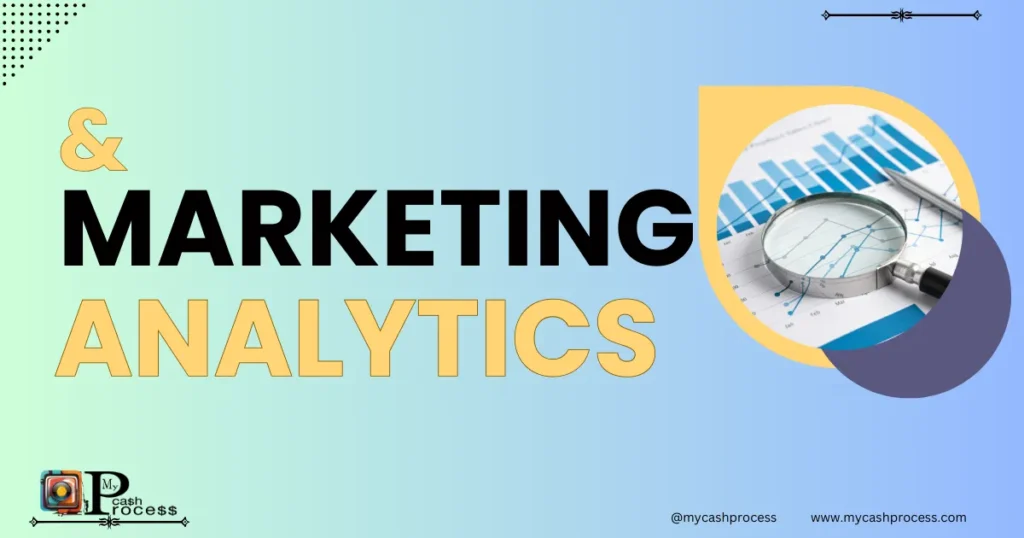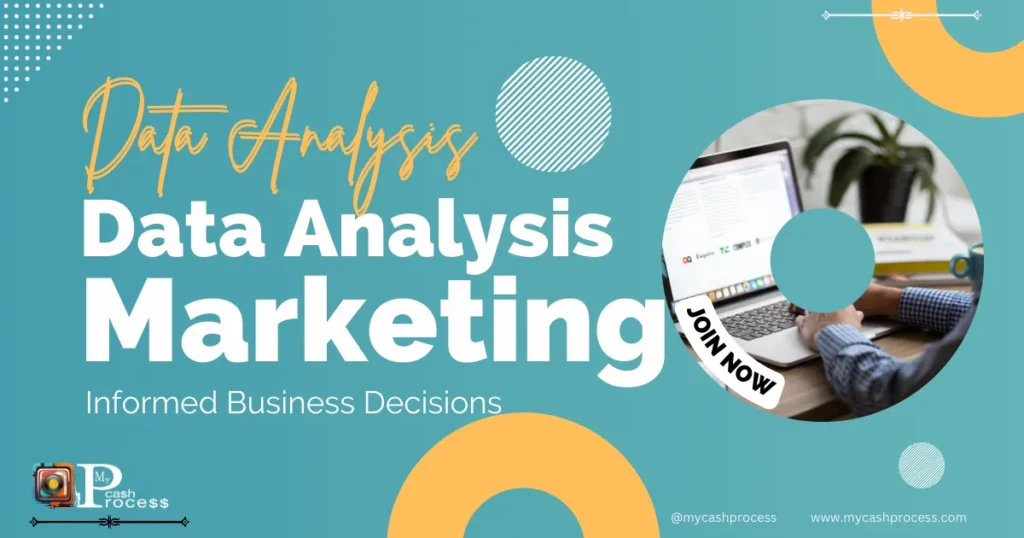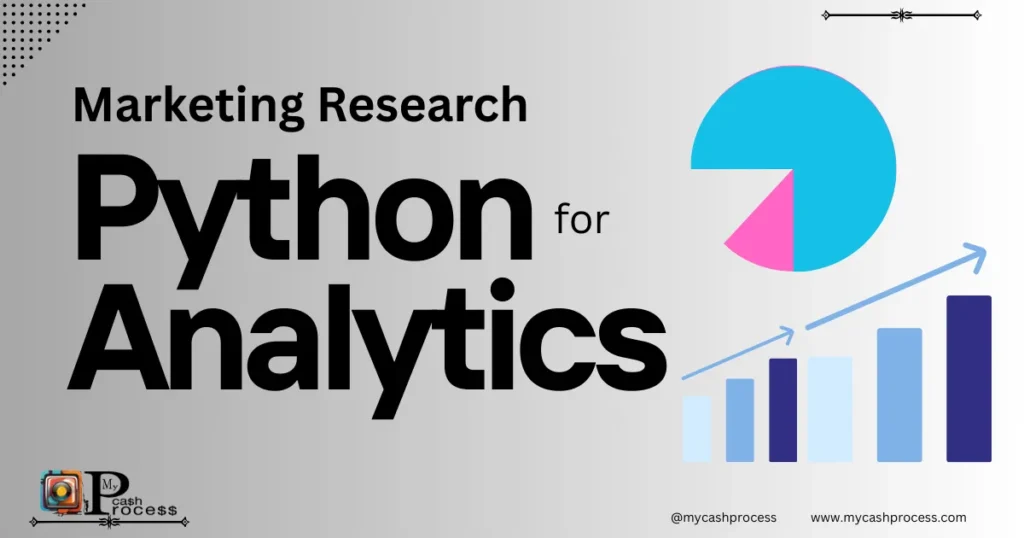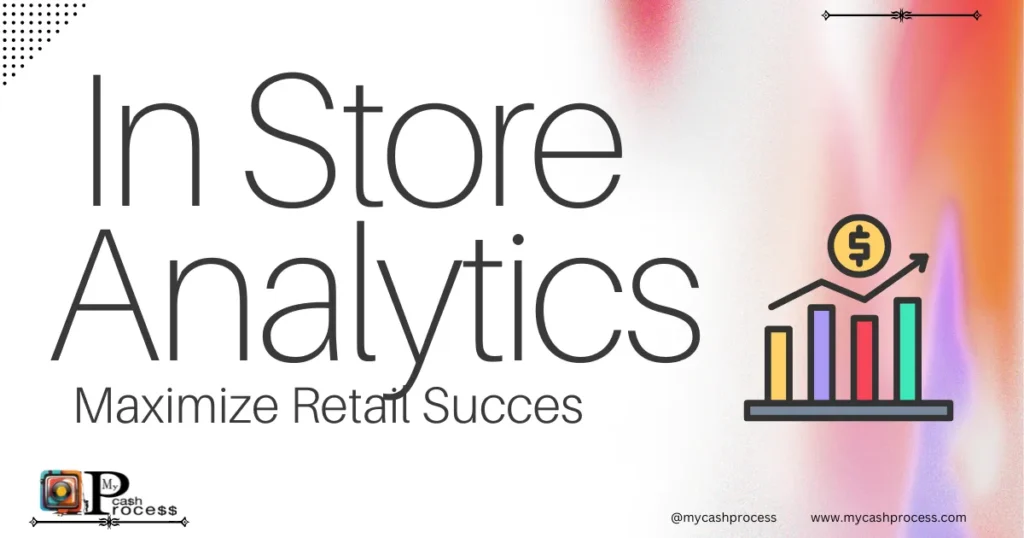Introduction
In today’s hyper-competitive business environment, Marketing and Analytics have become indispensable tools for companies seeking to stay ahead of the curve. Businesses are inundated with data from various sources, but the key to success lies in effectively harnessing this data for actionable insights. The integration of marketing strategies with data-driven analytics allows organizations to make informed decisions, optimize campaigns, and better understand consumer behavior. This ultimate guide will delve into the critical role of Marketing and Analytics in driving data-driven success while addressing the challenges and opportunities in this domain.
Throughout this guide, we will explore essential aspects of Marketing and Analytics, including tools, techniques, and real-world applications. We’ll also highlight how secondary topics like What Role do Data Analytics play in modern sports marketing, PDF Python for marketing research and Analytics, Realpage market Analytics cost, and Marketing Data Analysis play pivotal roles in shaping the future of marketing. Let’s embark on a journey to uncover the transformative power of Marketing and Analytics.
Quick Access Guide
What Are Marketing and Analytics?
Marketing and Analytics refer to the systematic use of data to design, execute, and optimize marketing campaigns. At its core, this discipline combines traditional marketing principles with advanced analytical tools to achieve measurable outcomes. By analyzing consumer behavior, market trends, and campaign performance, businesses can refine their strategies for better engagement and ROI.
Defining Marketing and Analytics
- Marketing: The practice of promoting products or services to attract customers.
- Analytics: The process of examining data to extract meaningful patterns and insights.
- Marketing and Analytics: The fusion of these practices to create data-informed marketing strategies.
Connection Between Marketing Strategies and Data-Driven Decision-Making
- Consumer Insights: Leveraging analytics to understand customer preferences.
- Optimized Campaigns: Using data to identify the best-performing strategies.
- Enhanced ROI: Measuring the success of marketing initiatives through precise metrics.
The Role of Data in Modern Marketing
Data is at the heart of Marketing and Analytics, serving as the foundation for making informed decisions. Modern marketing relies on a variety of data points, including customer demographics, purchase history, and online behavior.
Understanding the Impact of Data on Marketing Strategies
- Targeted Marketing: Personalized campaigns based on user preferences.
- Predictive Analytics: Anticipating customer needs and behaviors.
- Performance Measurement: Analyzing KPIs to gauge success.
Real-World Applications
- Retail: Tracking consumer buying patterns to optimize inventory.
- E-commerce: Personalizing product recommendations.
- Healthcare: Designing campaigns for specific patient demographics.
PDF Python for marketing research and Analytics
Tools and Techniques for Effective Marketing and Analytics
Successful Marketing and Analytics require the right tools and techniques. From data visualization platforms to machine learning algorithms, the arsenal of a modern marketer is vast and powerful.
Popular Tools for Marketing Data Analysis
| Tool | Purpose | Benefits |
|---|---|---|
| Google Analytics | Website traffic analysis | Real-time insights |
| Tableau | Data visualization | Easy-to-understand dashboards |
| R and Python | Statistical analysis | Flexibility and customization |
Incorporating “PDF Python for Marketing Research and Analytics”
Python, a versatile programming language, is increasingly used for marketing research and analytics. Its libraries, such as Pandas and Matplotlib, simplify data manipulation and visualization. For instance, a marketer can use Python to:
- Automate data collection from PDFs.
- Perform predictive analysis to forecast trends.
- Visualize data for better decision-making.
What Role Do Data Analytics Play in Modern Sports Marketing?
In the realm of sports, data analytics has revolutionized marketing strategies. The integration of Marketing and Analytics enables sports organizations to connect with fans and maximize revenue.
Specific Use Cases in Sports Marketing
- Fan Engagement: Personalizing experiences through targeted campaigns.
- Sponsorship ROI: Measuring the impact of sponsor activations.
- Performance Metrics: Analyzing player performance to enhance marketing efforts.
Benefits of Data-Driven Strategies for Sports Businesses
- Enhanced Fan Loyalty: Tailored experiences foster deeper connections.
- Revenue Growth: Optimized pricing and promotions drive sales.
- Operational Efficiency: Streamlined processes through data insights.
Realpage Market Analytics Cost: Is It Worth It?
Realpage Market Analytics is a comprehensive solution for analyzing real estate markets. Its cost-effectiveness often raises questions among marketers.
Overview of Realpage Market Analytics
Realpage provides actionable insights into:
- Market trends.
- Competitor performance.
- Investment opportunities.
Cost-Benefit Analysis
| Cost | Benefit |
| High initial investment | Comprehensive market insights |
| Subscription fees | Regular updates and real-time data |
Building a Data-Driven Marketing Strategy
Developing a robust data-driven strategy is essential for leveraging the full potential of Marketing and Analytics.
Steps to Create an Actionable Strategy
- Define Objectives: Establish clear goals.
- Collect Data: Use reliable sources for accurate insights.
- Analyze Data: Employ tools like Python and Tableau.
- Implement Strategies: Tailor campaigns based on analysis.
- Monitor and Optimize: Continuously refine for better results.
Insights from “Marketing Data Analysis”
- Segmentation: Dividing audiences into specific groups.
- Attribution Modeling: Understanding which channels drive conversions.
Realpage market Analytics cost,
Common Challenges in Marketing and Analytics
Despite its benefits, Marketing and Analytics come with challenges that marketers must address.
Barriers to Effective Data Analysis in Marketing
- Data Overload: Difficulty in managing large datasets.
- Privacy Concerns: Ensuring compliance with regulations.
- Skill Gaps: Lack of expertise in data analytics tools.
Solutions and Strategies to Overcome These Challenges
- Automation: Leveraging AI for data management.
- Training: Upskilling teams in analytics tools.
- Compliance Measures: Adopting GDPR-compliant practices.
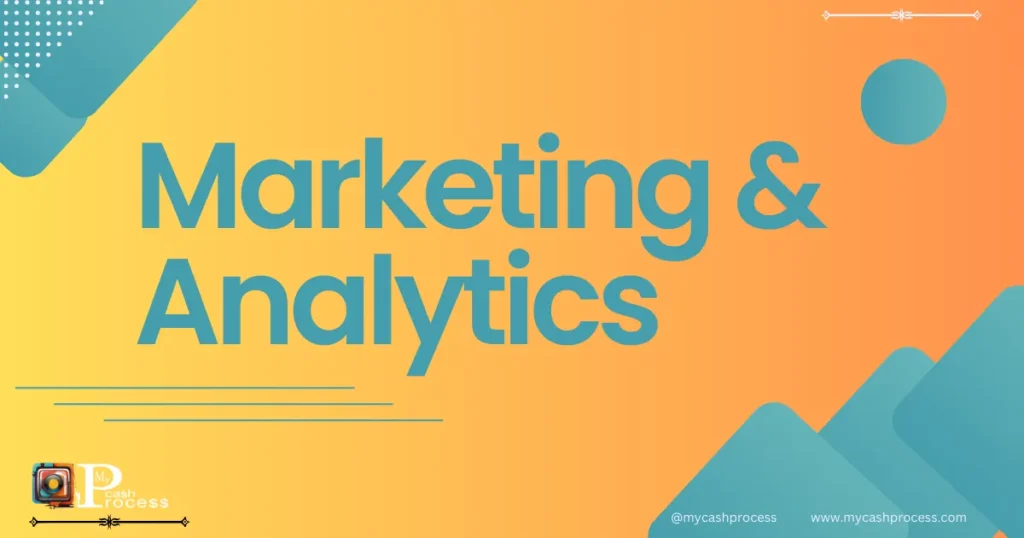
The Future of Marketing and Analytics
The landscape of Marketing and Analytics continues to evolve, driven by technological advancements and changing consumer behaviors.
Emerging Trends in Marketing and Analytics
- AI and Machine Learning: Automating data analysis and personalization.
- Voice Search Optimization: Adapting to changing search habits.
- Blockchain: Enhancing data security and transparency.
Predictions for the Role of AI and Machine Learning
AI will play a critical role in:
- Predictive analytics.
- Customer segmentation.
- Dynamic content creation.
Exploring Niche-Specific Marketing Approaches
The effectiveness of marketing and analytics often depends on tailoring strategies to specific industries or niche markets. While broad marketing tactics may work for some, a more focused approach can yield significantly better results in specialized areas.
1. Tailoring Analytics to Niche Markets
Each industry has unique customer behaviors and preferences. For instance, the healthcare sector relies on patient engagement metrics, while the entertainment industry focuses on audience engagement patterns. Using analytics to understand these nuances ensures more precise targeting and improved outcomes.
2. Case Studies of Unique Industries Benefiting from Specialized Analytics
Industries like luxury retail, non-profits, and education have implemented specialized data-driven strategies to cater to their audience. A luxury brand may use analytics to track high-value customer preferences, while a non-profit might focus on optimizing donor outreach efforts. These examples showcase how niche-specific marketing enhances engagement and ROI.
3. Examples of How Different Sectors Use Data Differently
Retail relies heavily on customer behavior patterns, while B2B sectors prioritize lead generation and account management. Understanding these sector-specific needs highlights the versatility of marketing and analytics across various fields.
What Role Do Data Analytics Play in Modern Sports Marketing?
The Ethical Side of Data in Marketing
In an era where data is king, ethical considerations in its use are becoming increasingly critical. Businesses must strike a balance between leveraging data for personalization and respecting consumer rights.
1. Importance of Maintaining Consumer Privacy
Consumers are more aware than ever of how their data is used. Brands must ensure transparency in data collection and usage to build trust. Practices like obtaining explicit consent and anonymizing data help maintain privacy standards.
2. Regulations Governing the Use of Marketing Data
Laws like GDPR and CCPA impose strict guidelines on data collection and usage. Compliance with these regulations protects businesses from penalties and strengthens customer relationships by demonstrating accountability.
3. Balancing Personalization with Ethical Considerations
While personalization can significantly enhance user experience, over-personalization can feel intrusive. Brands must ensure they respect consumer boundaries while delivering tailored marketing messages.
Cross-Disciplinary Collaboration in Marketing Analytics
Effective marketing analytics requires a collaborative approach that bridges the gap between creative and analytical teams. This synergy fosters innovative solutions and more robust strategies.
1. How Marketing Teams Can Collaborate with Data Scientists
Marketing teams provide insights into customer needs, while data scientists analyze patterns and trends. Collaborative brainstorming sessions and joint goal-setting exercises ensure that strategies align with data insights.
2. Examples of Successful Cross-Departmental Initiatives
Brands that integrate creative and analytical teams often achieve better results. For example, a digital marketing team working with data scientists to design targeted ad campaigns can significantly improve ROI by combining creativity with data precision.
3. The Benefits of Combining Creative and Analytical Skill Sets
Blending creative storytelling with analytical insights enables businesses to craft compelling campaigns that resonate with audiences while being backed by data-driven decisions. This approach enhances customer engagement and drives measurable success.
The Psychological Aspect of Consumer Behavior in Marketing
Understanding consumer psychology is vital for creating marketing strategies that resonate with audiences. Data can reveal trends, but psychology explains the “why” behind those behaviors.
1. The Role of Emotional Triggers in Decision-Making
Emotions often drive consumer choices more than logic. Marketers can leverage emotional triggers like trust, fear, or joy to craft campaigns that connect with their audience on a deeper level.
2. Behavioral Patterns in Digital Environments
Online platforms provide unique insights into consumer habits, such as scrolling behavior, time spent on a page, or interaction with content. Recognizing these patterns allows marketers to fine-tune strategies for maximum engagement.
3. Building Long-Term Loyalty Through Psychological Insights
Loyalty stems from consistent positive experiences. By understanding what motivates and satisfies consumers, brands can develop strategies that foster long-term relationships and enhance customer retention.
Conclusion
The integration of Marketing and Analytics offers unprecedented opportunities for businesses to thrive in a data-driven world. By leveraging the right tools and strategies, marketers can unlock valuable insights, drive engagement, and achieve sustainable growth.
Warning
- Avoid relying solely on data without considering human intuition.
- Beware of privacy violations and ensure compliance with data protection laws.
Follow us on Pinterest, Twitter X, Facebook, Instagram, Quora, TikTok, Discord, YouTube, and WhatsApp Channel.
Advice
- Invest in training and tools to stay ahead in the analytics domain.
- Regularly revisit and refine marketing strategies based on analytics.
FAQs
What Role Do Data Analytics Play in Modern Sports Marketing?
Data analytics helps personalize fan experiences, measure sponsorship ROI, and analyze performance metrics in sports marketing.
How Can PDF Python Be Used for Marketing Research and Analytics?
Python simplifies data extraction, analysis, and visualization, making it a valuable tool for marketing research.
What Are the Benefits of Using Realpage Market Analytics?
Realpage offers actionable insights into market trends, competitor performance, and investment opportunities.
Why Is Marketing Data Analysis Essential for Strategic Decisions?
Marketing data analysis provides actionable insights that help refine strategies, optimize campaigns, and enhance

